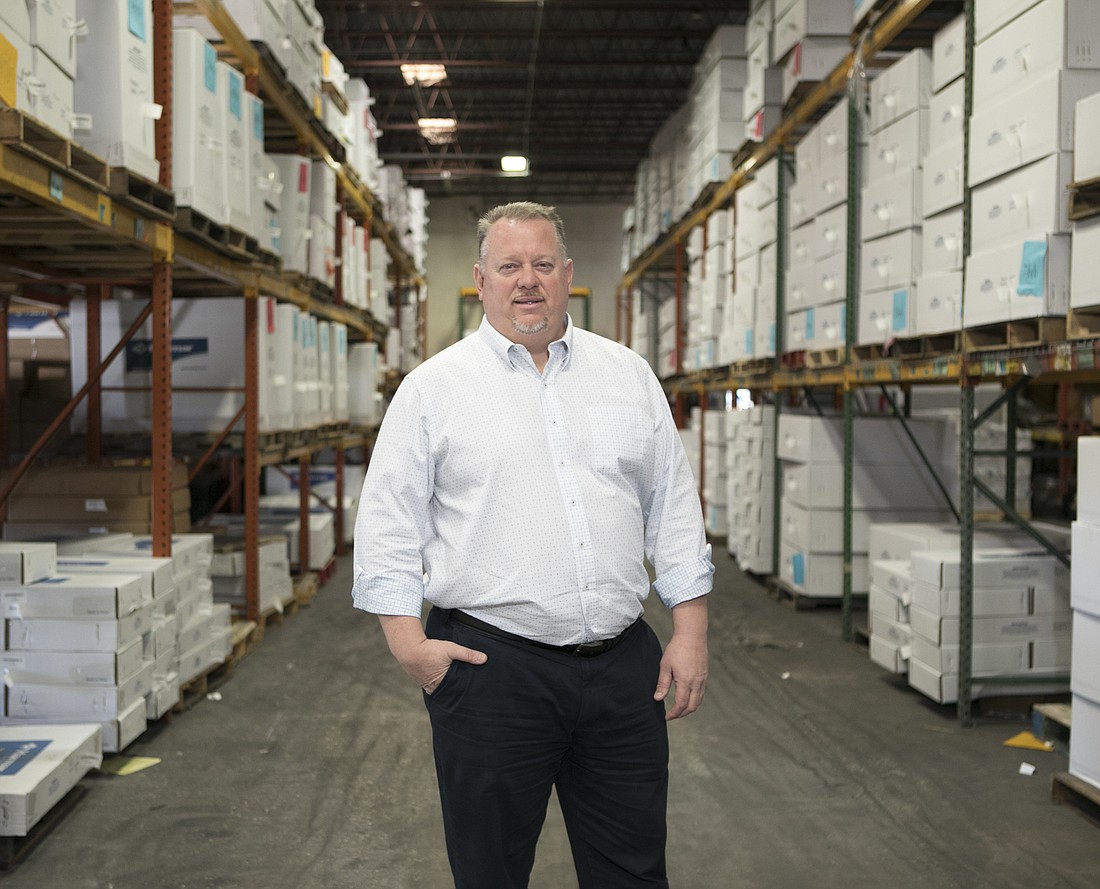- July 26, 2024
-
-
Loading

Loading

Walking through the Sarasota factory of mobility lift maker Harmar, CEO Steve Dawson knows pretty much all the employees’ names, greeting them individually as he walks by.
They’re working on manufacturing products such as stair lifts and vehicle lifts that allow people who have mobility challenges to travel up stairs in their homes or lift their wheelchairs into a vehicle.
The company, founded in 1998, has grown of late, bolstered by an aging U.S. population, and demographic shifts that likely will remain a factor helping the company increase sales. But Harmar, not relying solely on on outside forces, is also focusing on two key internal efforts — introducing new products and formalizing its installation network — to ensure even greater growth ahead.
Dawson declines to disclose Harmar’s revenue, though he does say profits have grown by double digits over the past couple of years. A driving principle for the company, he says, is simple but crucial: “Product quality is probably your most important marketing tool.”
“Product quality is probably your most important marketing tool.” — Steve Dawson, CEO, Harmar
Harmar’s top sellers are mobility wheelchair and scooter lifts. “We sell more wheelchair and scooter lifts than anybody on the market,” says Dawson.
That’s because of some key reasons, he says: the breadth and depth of the company’s products; the product design; and products that work for a greater number of people. Dawson says the company has 40% more combinations of mobility device, vehicle and hitch than its competition. “Most people can find the right combo,” he says.
Harmar’s sales team regularly visits the company’s customers — dealers who sell home medical equipment, handicap-accessible vehicle dealerships and Veterans Affairs hospitals. The VA is one of Harmar’s biggest clients, Dawson says.
Medicare generally doesn’t cover the company’s products, he says, but the VA does provide some coverage to veterans with approved needs.
Harmar dates back to Sarasota entrepreneur Chad Williams, who bought a small vehicle lift company called All Purpose Manufacturing in 1998. He renamed the business Harmar Auto Lift. The company made the Inc. 5000 list for fast growth in 2003 and 2004, and New York private equity firm Cortec bought a controlling stake in the business in 2012. Dawson was an executive with another Cortec-owned business before he joined Harmar.
Today, Harmar sells its products through its dealer network in all 50 U.S. states and other countries, but plans to maintain focus on its domestic market. “Right now, we’re going to stick to the U.S.,” Dawson says.
One of its newest business lines comes from collecting feedback from the company’s various clients. One demand? More affordable products. That’s why it introduced the Pinnacle SL300 Stair Lift. It’s more affordable, coming in at about $3,000 installed for the end user — instead of closer to $3,900. “Our strategy is to launch one new product a year,” he says.
But the best way to grow, Dawson says, is to work with the company’s dealers to help them sell more. Harmar does that through product education and LiftSquad, the company’s new installation and service network. Among other features, LiftSquad gives end users confidence, since all installers are trained and certified by Harmar.
While the company sees potential in LiftSquad and its latest product, challenges remain. The biggest? The political climate, including tariffs and trade with China and other countries, Dawson says. “What’s going on in Washington has caused disruption in the supply chain,” he says.
Tariffs, for example, have pushed prices for steel and aluminum up 25% to 30%, Dawson says. The company has absorbed some of the rise, but it’s also had to increase prices.
Hamar’s other main challenge is a common one: finding enough good people. The company, at any one time, has 10 openings.
Its products are manufactured in Sarasota and Lake Winnebago, Mo. It has more than 200 employees —120 in Sarasota and 70 in Missouri plus some remote employees in sales and support.
“We’ve been pretty successful finding people here,” Dawson says of Sarasota. “We tend to pay a little more.” Paying higher wages encourages employees to stay at the company, he says, and Harmar ends up spending less because it trains less new hires. “Once we get them here,” he says, “they tend to stay.”
One aspect of the company that helps with recruitment is the nature of the what it does. To underscore the company’s impact, it displays photographs around the office of people Harmar has helped through its products. Dawson says, “The thing I like the most about the business is we’re helping people.”